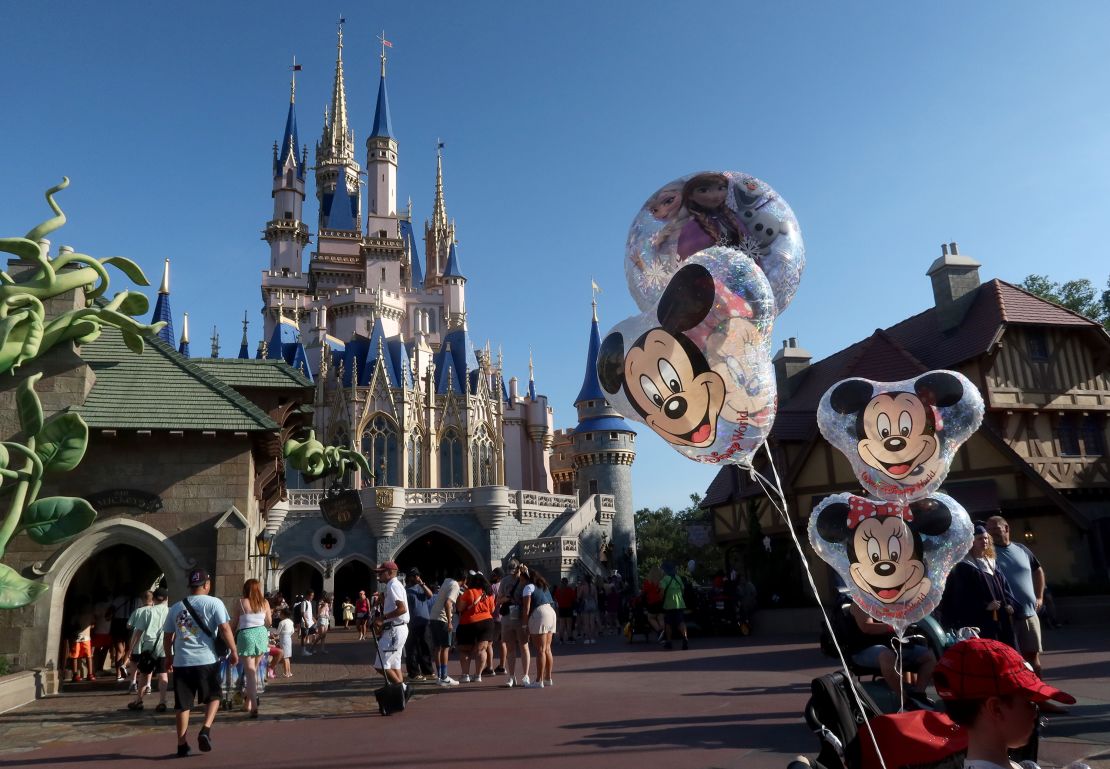CEOs of many of the biggest US hotel and travel companies are coming off a bit like doomsayers these days with their warnings about the declining health of consumers and their waning appetite for travel.
That’s getting a lot of attention after last month’s unexpectedly weak jobs report, which brought the US unemployment rate to the highest level since fall 2021. And it has put more people on high alert for signs of a recession. Typically, when there is an economic downturn, travel is the first shoe to drop as people put off vacations to prioritize spending on everyday necessities.
The good news is that the shoe is far from dropping — it’s just normalizing, moderating or softening — to quote the language that executives are using.
“We are seeing shorter booking lead times globally and some signs of slowing demand from US guests,” Airbnb CEO Brian Chesky said on the company’s earnings call last week. “It’s not that consumers are not necessarily going to book that trip for Thanksgiving or Christmas, it just appears that they have not booked it yet,” Airbnb CFO Ellie Mertz later added on the call. This trend wasn’t playing out in recent years, they noted.
Hilton’s CEO Chris Nassetta cautioned that coming out of the pandemic when consumers were flushed with savings, they now have “less disposable income and capacity to do anything, including travel,” he said on the company’s earnings call last week.
Disney theme parks in the US are starting to experience material weakness with a drop in attendance last quarter that contributed to a decline in overall profits generated through parks and cruises. Disney’s CEO and CFO said in commentary published last week they expect consumer “demand moderation” to last for “a few quarters.”
Wall Street has — for the most part — interpreted these remarks as a euphemism for “it’s about to get ugly,” and it’s caused a lot of selling of travel stocks. But investors once again may be overreacting to CEOs who are trying to prepare them for the worst — only to eventually exceed their expectations.
Americans are very much still traveling
Airbnb’s Mertz made a fair point: Just because Americans haven’t finalized travel bookings for the future doesn’t mean they aren’t going to take trips. Demand is still very much present, even in light of economic headwinds.
A higher share of American consumers reported they intended to take a vacation in the next six months in June compared to June of last year, according to the Conference Board’s Consumer Confidence survey.
Additionally, US hotel occupancy rates were higher for the week ended on August 10 compared to the same week last year, according to data from CoStar Group which draws from more than 82,000 hotel locations across the US.
Storm clouds are forming, but the forecast could easily change
The biggest source of weakness is lower-end economy properties, where occupancy rates have been declining for the first six months of the year, said Jan Freitag, the national director of hospitality analytics at CoStar. But luxury hotels are seeing higher demand, underscoring the bifurcation between lower- and higher-income consumers.
“The consumer is pulling back on low end, and it’s basically smooth sailing-ish on the upper end,” Freitag said.
Across all income groups, spending on travel ticked down in June compared to May, according to a Bank of America Institute report that drew from credit card transactions. Researchers attributed that to price decreases, though, and said “the underlying picture for travel remains robust.”

Much of the revenue growth that travel companies reported in recent years resulted from inflation, said David Tinsley, a senior economist at Bank of America Institute. With inflation cooling, it’s “natural” that the travel revenue growth would “come back down,” he added.
Inflation aside, consumers are being more judicious about their spending, likely a product of the weakening labor market, Tinsley said.
“It was always going to be tough to expect travel spending to be showing the kind of momentum it showed 12 months ago,” he told CNN. “I don’t think the current situation is particularly bleak — it’s reasonable to see more normalization playing out,” he said, referring to travel spending getting back on par with pre-pandemic trends.
Kayak CEO Steve Hafner referred to the current situation as a “traditional fall slump” in a statement to CNN. However, the company noted that trip lengths have “stabilized,” implying people are taking shorter trips. But, compared to 2021, the average trip length is up 18%, Kayak said.
Still, it’s not hard to see why this mixed picture is prompting travel companies to tread carefully.






